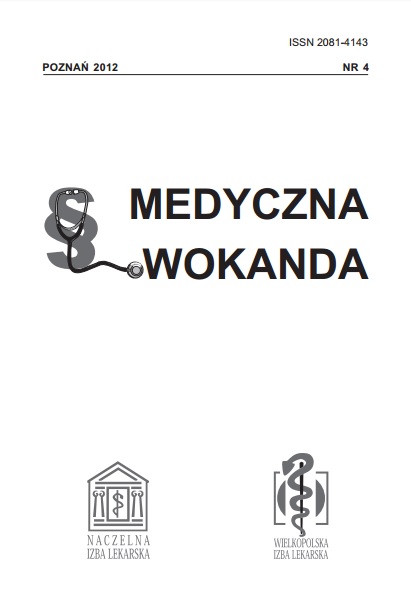Wymaganie zgody pacjenta na leczenie w sytuacjach braku szczególnego zagrożenia
Obtaining a patient’s consent for treatment. Practical problems
Author(s): Teresa GardockaSubject(s): Law, Constitution, Jurisprudence, Human Rights and Humanitarian Law
Published by: Naczelna Izba Lekarska
Keywords: patient’s consent;treatment
Summary/Abstract: Obtaining a patient’s consent for treatment is a practical issue. Every doctor deals with it on aneveryday basis, being aware that providing treatment without this consent is a criminal offence. The issue of consent produces a dilemma of what is more important: life or freedom, a dilemmathat criminal law clearly resolves in favor of freedom. The requirement of obtaining a patient’s consent for treatment allows only for a highly limitedrange of deviations from this rule and causes moral discomfort in doctors and their sense of contradicting the fundamental, deeply internalized duty to treat a patient, which is the basic vocationof a doctor.The legal regulations pertaining to consent for treatment leave much to be desired. Firstly, thepossibility (necessity) of treatment without a patient’s consent which is stipulated in various acts seems inadequate to social needs. Excessive leeway in treatment is provided by the Act on the protection of mental health while abandoning treatment when no consent is given by AIDS victims for the sake of fully observing the principle of medical confidentiality has been unjustified.Secondly, the regulations on the process of obtaining a patient’s consent for treatment are notprecise. In particular, they are difficult for the doctors to interpret. Even when a doctor has an excellent understanding of how to proceed in order to obtain a patient’s consent for treatment,some of the requirements stipulated in the act are unrealistic in practice. It is possible to obtain consent from a guardianship court only under extraordinary circumstances, even when a doctorknows precisely how and when such consent should be obtained.The act makes use of vague notions that are difficult even for a lawyer to identify; for example the notions of “legal representative”, “close relative”, and “guardian”. They are not legally definedand are very unclear for a doctor.The paper makes an attempt to clarify the notions used in the act and find their reference to practicaltasks. This seems useful for practicing doctors who increasingly often seek solutions for complicated situations driven by fear of the potential criminal consequences rather than by concernwith their patient’s wellbeing.
Journal: Medyczna Wokanda
- Issue Year: 4/2012
- Issue No: 4
- Page Range: 75-87
- Page Count: 13
- Language: Polish

